Chapter 15: "Like A Boss ..."
Some details, ideas, and musings I've had experiencing effective RPGs and RPG Makers
© May 2019 Written by David Wicker
Please do not reprint without permission
Last week we went over the different kinds of ways Panels could be used in RPGs.
This week we're going to go over two important things, bosses, yes, but also the statuses that both bosses and regular attackers can inflict on the player and their companions.
First off you should realize that boss combat does not mean merely to have great gobs of hit points.
Any idiot can make a monster that has loads of hit points and does great damage to the player.
No, you want something more intelligent, more devious than this. Thus we have STATUSES. But before we get into that, let's get into one quick subject that does happen in some RPGs. The battle you CANNOT WIN.
That is, you are set upon by what appears to be a normal boss, but either they are so incredibly strong or their armor is so incredibly dense that no matter what level your player is, you won't be able to defeat them before you yourself are defeated.
Frustrating I know. Sometimes the game does this to show an important point (YOU ARE NOT WORTHY) or something along that line. It's important to recognize early when this happens so you do not use up all your valuable consumable items for a battle you later realize cannot win.
. . .
With that out of the way, let's get back to statuses. In early RPGs there were only a few status changes the player could have.
The most familiar one, of course, is POISON, usually from a serpent, snake, or viper.
You poison the player and it can mean a great many things. Usually that the player loses hits every step they take on the outside map and maybe take away hits when in combat too. It could cripple the player's strength and they don't attack with their all. It does not go away naturally and must be cured by an item, merchant, or spell.
Another familiar one is SLEEP, usually from an evil someone who can cast wicked spells.
You put the player to sleep and the armor goes right down. Usually the player is awoken from a mighty hit from their attacker, but because they were originally asleep, it's 2x to 4x more powerful than normal.
Sleep also means you won't awake if hit by an elemental spell, like fire, ice, or bolt. The player WILL automatically wake up after a certain number of moves, but you don't want to stay that vulnerable for that long. You need a friend to cast a spell or something to wake you up when it happens. Cured automatically after battle.
. . .
Those are the primary attack types. With newer RPGs there are others.
You can take BURN damage. That is, you take damage every time you attack if you have 3rd degree burns. The advantage to this though is that future fire attacks only do half damage. Burn must be cured with some type of salve, it does not go away.
You can take FREEZE damage. That is, you freeze up and don't move for half or more of your movements in attack, and when you do, you take damage. Also advantage future ice attacks do half damage. Freeze must be cured with some type of consumable, spell, or merchant ability - it does not go away.
SHOCK or PARALYSIS damage is another. Usually this locks up the player from moving at all and must be healed by a friend or companion in the heat of battle. If it was shock then future BOLT attacks also then do only half damage. Shock can go away but it may take a long time. The Paralysis condition usually ends after battle.
BLINDNESS is another. In this the player's accuracy is shot to nil. Global encompassing battle spells should still work but anything involving having to actually manually target an attacker will almost always miss. Blindness can end after battle but usually it doesn't. So if it doesn't go away, it must be cured.
SILENCE. No, it doesn't mean that your players stop talking during dialogue parts of the story, it means that this player cannot cast SPELLS in combat. Sure they can still attack with their weapons, but if they are a priest or some other player that does actual little physical damage with their weapons, it's going to be a problem. This doesn't go away so it must be cured.
TURN TO STONE. This one is serious. The player actually turns into solid stone. One obvious advantage is that they cannot be hurt so their hit points stay at the same no matter what is thrown at them. The disadvantage obviously is they cannot move, attack, or cast any spells. This debilitation must be cured, it does not go away.
DISEASE or SICKNESS. This is a pretty rare one but it makes good sense. You so much as touch this creature and you get DISEASED by it. Your armor goes down, your damage goes down, and everything else is pretty well normal. In some silly games the player might sneeze ACHOO ! right in the heat of battle.
You need to cure this condition as it does not go away and may even debilitate to ZOMBIE (just seen below).
ZOMBIE. This is an interesting one when you can find it. In it the player turns into a zombie and a few nifty things happen. One is no physical attack can hurt them, two is they are in auto-combat mode attacking for half damage to opponents and cannot be controlled. And three, they take double damage for any elemental attacks against them.
Must be cured, it does not go away on its own.
BERZERK, RAGE, or FURY. Seen in a few rare RPGs. This one is interesting and might actually be helpful to some Fighters. The player suddenly believes they are Conan The Barbarian and attack double strength but also take double damage.
The further disadvantage to this is they also cannot control themselves and are in auto-combat attacking random targets - not very useful if you are a little girl wizard and you try to beat the monster into submission with your dinky wooden staff. Cured automatically after battle.
CRAZY, CONFUSION, or INSANITY. This is a dangerous condition, especially if you have several companions helping you in battle. The afflicted player will do random things, usually against the favor of the combat.
Like randomly healing the attackers with consumable items, lashing out at their friends, or just sitting and staring into space while their friends are being pummeled. Not good. Cured automatically after battle.
CHARM or SEDUCTION. Another dangerous condition. This one does not do random things like CRAZY does but makes a concerted effort to actually assist the opponents or the single Charmer in question.
Usually they do not attack the other players but will waste their turn to toss carefully chosen and valuable and consumable items at their opponents to help them. Cured after battle.
HOMESICKNESS. I've only seen this in one RPG but it is a condition that does affect the player's performance in a game so I thought I would mention it here. It's cured by calling home to your Mother. Isn't that sweet ? But if you are inflicted with this you might miss an attack, use up your turn wishing for homemade apple pie, or just plain miss being home.
Not cured after combat and stays with the player. So stop sucking your thumb call your Mommy already !!
DEATH. This is terminal. You get hit with this and - if it's successful, your player dies, no matter what their hits are, right then and there. Not a good thing to happen if you are the only player in combat so usually this boss move is reserved only for games where the player has multiple companions to assist them in the battle.
Usually not curable after battle, requires a spell, item, or merchant ability with REVIVE - or the player exits combat with 1 hit point. Usually it's one or the other.
. . .
I wanted to touch only briefly in things that can happen when you DO defeat a boss. Some sneaky RPGs automatically lash out with 9999 damage just before they do, which invariably kills off every single player - every time, so when you claim VICTORY, you are handed DEFEAT.
The way to get around is to use a spell or consumable item that does a type of "Life Guard." That is, if that player dies, they are automatically revived. It's not the same as bringing a dead player back to life in combat, it is a condition that you put on your player so WHEN they die, they are revived THEN.
It is important to remember this one and you should only have a boss with this fearsome ability near the end of the game or on a boss creature that literally was "never meant to be found by the average player."
. . .
Okay, so we've seen some negative conditions that can affect the player. What are some other interesting boss ideas ?
Well realize it's not much fun with just one boss attacking you. Intelligently planned ones come in sets of 2 or 3 and THEIR companions do such thing as heal the main boss attacker or retaliate violently if you hit the main target. So when you get into combat you want to defeat the HEALER first and then go after the others.
Boss companions can also do other things such as great damage to the player so if the player in fact only focuses on the main boss and not them, they will be defeated no matter how well they play. Usually companions to bosses have low hit points to ensure the player is rewarded for choosing them over the main target. Force your players to use their brains !
Bosses can do a countdown as well. This is pretty neat. They may show something like, "Deathwyrm whispers 3 ..." "2 ..." "1 ..." which counts down each combat round. If they are still alive after they count to 1 then a devastating attack can take place that will surely wipe out the unprepared players.
Bosses can also do really complex things, for instance, there could be 3 of them that attack you. One big one and two minor ones. But the boss's armor is super-strong for some reason. You must defeat one of the smaller bosses which in turn was protecting the boss with a shield spell.
In defeating the minor boss the game could say, "Shield is down." giving you the A-OK to attack the big boss now.
. . .
The last type of boss combat is a silly one. That is where you appear to be in a normal boss battle but can't seem to make any headway damaging your target. Then you do something random like attack a switch or a rope or something nearby them.
That is what the game wants and what they expected you to target so something ludicrous happens like a weight drops on them or they fall in a pit howling "Oh, what a world ! What a world !" You get the idea.
. . .
And that's it ! When making your bosses, make them intelligent, cunning, and scheming. Don't make it too easy for the player. Always set it that no matter how powerful the player is that they will always be at a disadvantage =IF= they don't check out what all is available as far as having their head on a swivel goes. Not just the boss, but around the boss as well.
. . .
Next week we're going to cover the importance of having multiple players in your RPG or RPG Maker. That is, when each is given independent motion, either to assist in a combat or navigate a tricky multi-layered map.
Until then, bye for now ...



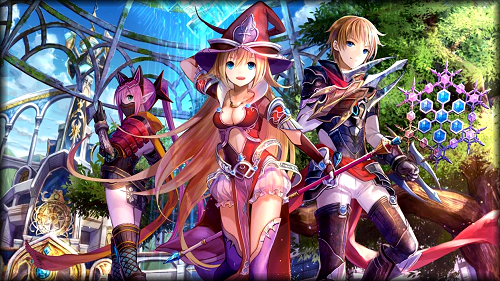
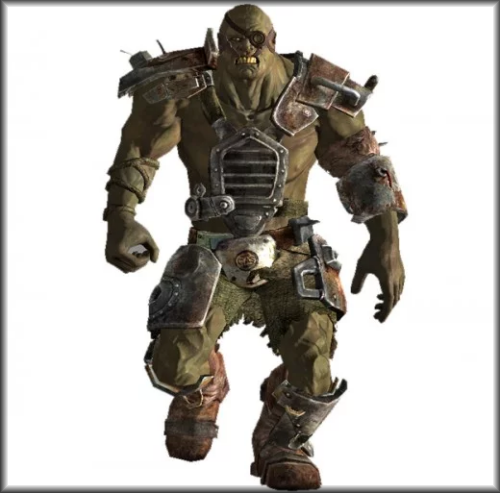
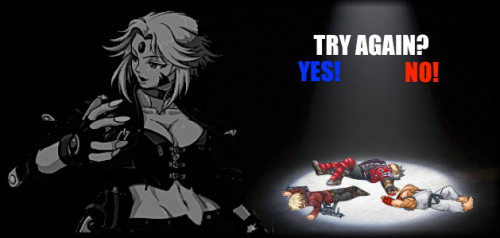
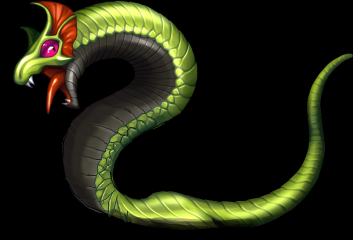
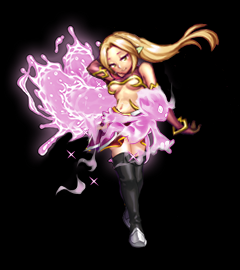
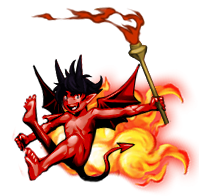
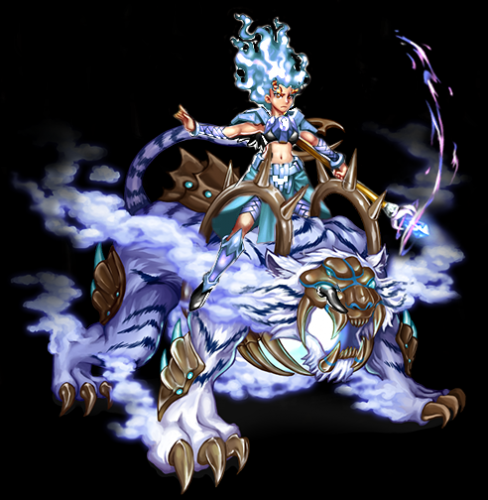
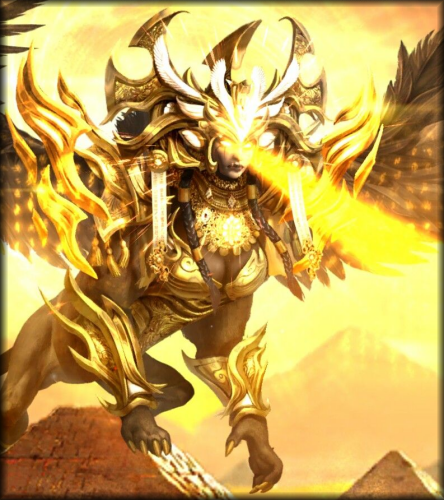
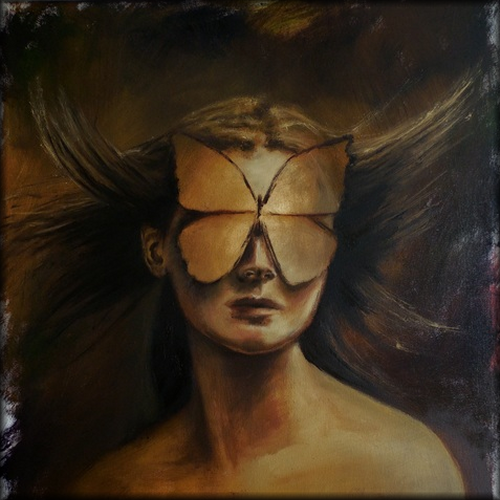
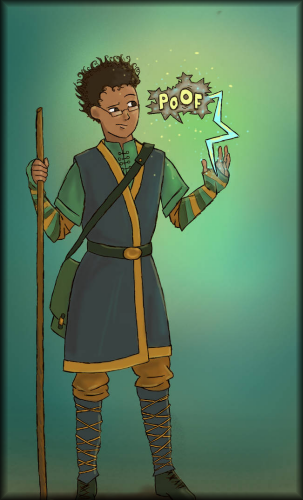
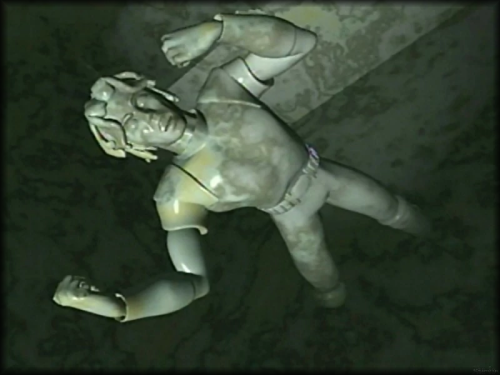
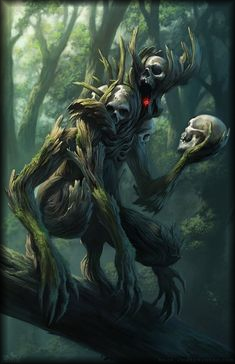
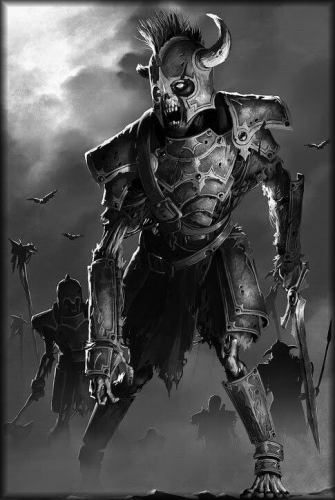
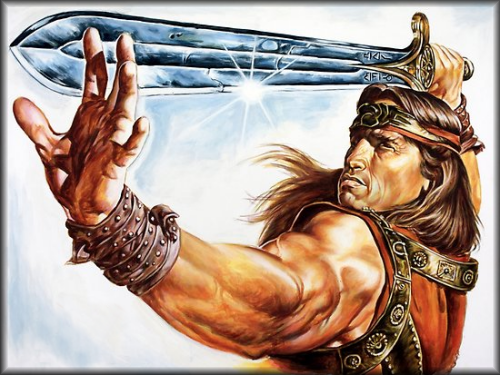
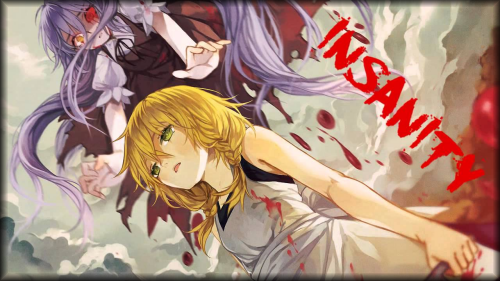
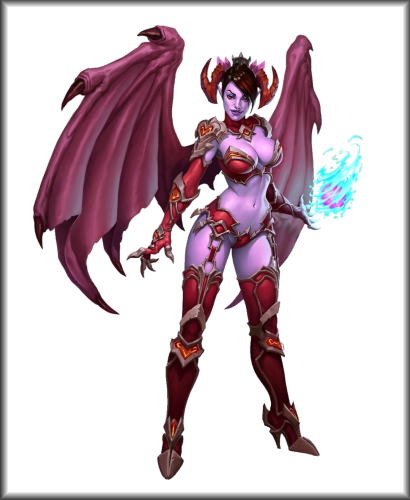
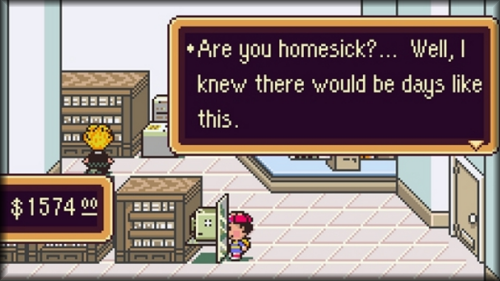
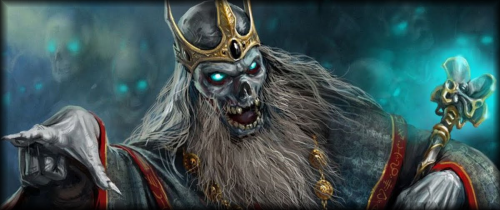
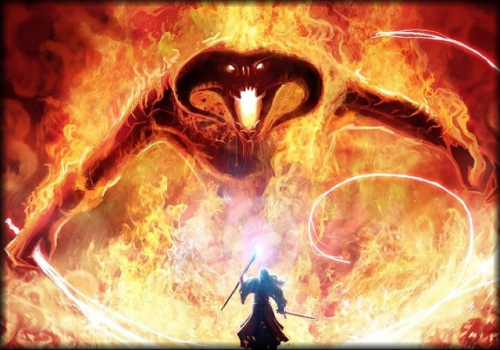
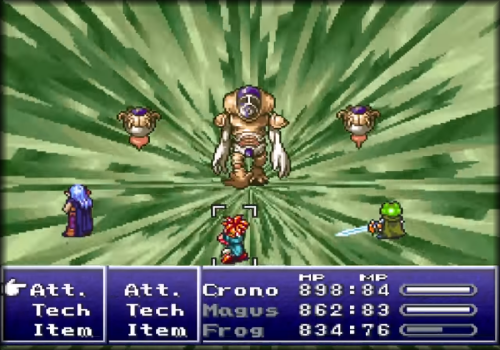
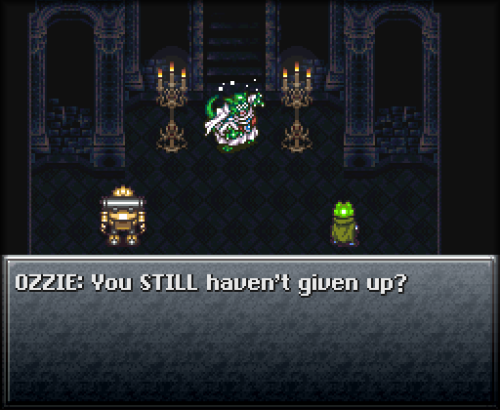
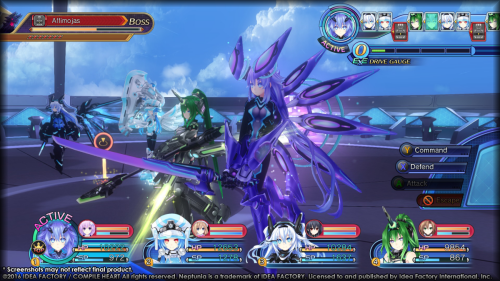
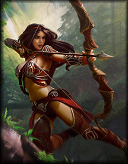

 Flag Writing
Flag Writing